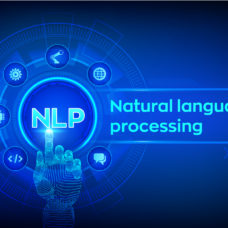A new hybrid system combines classical machine learning techniques with quantum computation to optimize the management of the power grid.
Strategically deployed across the grid, Phasor Measurement Units (PMUs) are sensor devices that measure currents and voltages at a particular time.
PMUs generate huge amounts of data that help utility companies monitor the power grid.
The storage of these large datasets is already a challenge. Accessing and analyzing these datasets is also an issue that is only getting more complicated over time.
In the U.S, the network of PMUs collects a cumulative total of 3 million gigabytes of data every two seconds.
At the moment, many companies use machine learning algorithms to control this data, and these structures work “fine” because they run on classical computing systems.
However, there are also quantum algorithms which could be much faster and powerful. However, the real potential of these algorithms remains obscured due to our lack of true quantum computers.
But, what if researchers combined the two to accommodate our urgent Big Data analysis needs?
Read More: New Cold Atoms System Could Boost Quantum Capabilities
Quantum Machine Learning to Crunch Big Data
Computer scientists at Purdue University used data generated by the U.S. Department of Energy network of PMUs in their efforts to develop quantum machine learning algorithms.
Purdue’s Quantum Machine Learning system is a hybrid between classical machine learning techniques and quantum computation. If scalable, it could enable fast access and analyzation of Big Data.
“Non-quantum algorithms that are used to analyze the data can predict the state of the grid, but as more and more phasor measurement units are deployed in the electrical network, we need faster algorithms,” said Professor Alex Pothen, co-investigator of the research. “Quantum algorithms for data analysis have the potential to speed up the computations substantially in a theoretical sense, but great challenges remain in achieving quantum computers that can process such large amounts of data.”
Beyond the power grid, quantum machine learning algorithms could prove just as effective for chemistry and material science.
The Purdue team used a type of artificial neural network called the quantum Boltzmann machine for their new quantum algorithm. This new machine could help “industries optimize their supply chain and logistics management. It could also lead to new chemical and material discovery.”
“We have already developed a hybrid quantum algorithm employing a quantum Boltzmann machine to obtain accurate electronic structure calculations,” Kais said. “We have proof of concept showing results for small molecular systems, which will allow us to screen molecules and accelerate the discovery of new materials.”
Read More: How Neural Networks Cracked Quantum Error Correction
Another field that could benefit from such quantum machine learning algorithms is the renewable energy industry — specifically solar farms.
As they harvest solar power, photovoltaic cells degrade from the sunlight itself and other weather elements, putting uncertainty over the lifetime of a solar plant.
According to the present research; “using quantum algorithms would make it easier to determine the lifetime of solar farms and other sustainable energy technologies for a given geographical location and could help make solar technologies more efficient.”



















Comments (0)
Most Recent